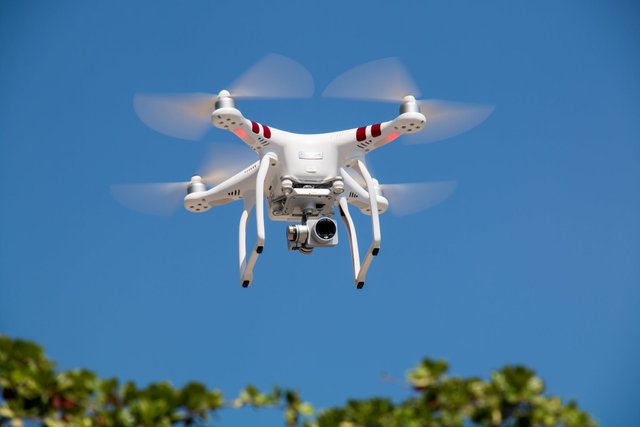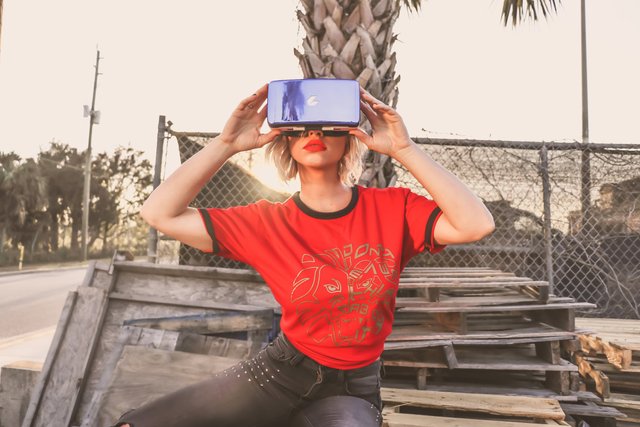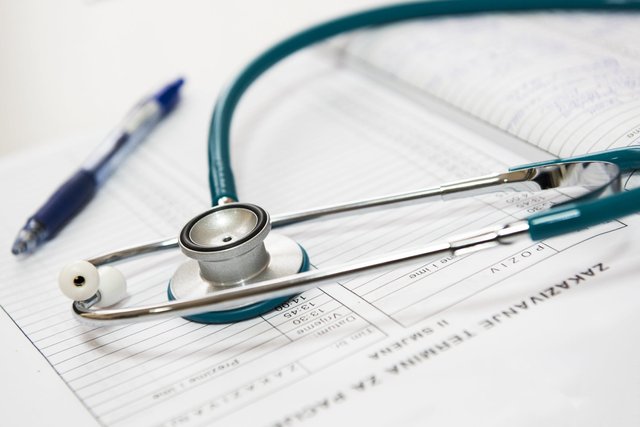ADSactly Tech News - How Medical Technology is Saving Lives in 2018
ADSactly Tech News: How Medical Technology is Saving Lives in 2018

- New technologies are making a huge impact on the future of healthcare across the world.

In the world of technology it doesn't take a genius to realize that the pace at which it advances moves much faster than our understanding or awareness of how far humanity has progressed comparatively.
The world of today faces new problems that we've never had to deal with in the past. Issues like overpopulation, sustainability and unemployment are all very big concerns for politicians and world leaders across the globe.
The fact that the world has faced such exponential population growth says a lot about the state of medicine and specifically the improvements made in this field.
As our world becomes more technologically complex and copes with exponential growth of population, the number of people with health issues will also rise exponentially. Because of this fact, companies are looking to further develop technologies that can address the sheer number of cases quickly and counteract new chronic illnesses.
In 2018, we have seen a shift towards medical technology. The industry has steadily grown each year, expected to be worth a staggering 467 billion in 2020.
Because there is so much money on the table and the needs of the masses are surely predicted to grow a new range of treatments and methods for treating patients must be developed. Technology has a way of simplifying processes if applied in the right manner and in this case we are talking about the potential to save lives.
In this article I will discuss some of the specific new technologies that are transforming the medical industry as we know it. Things like delivery drones, AR and advanced robotics will all play a major role in the coming transformation of modern medical practice.



A sharp rise in augmented reality and VR has also seen a change in the market, with companies realising the potential of the tech. Mobile phone use has only served to enhance the need for these options. With the healthcare profession also becoming overburdened by complex processes, the innovation and development in medical technology are essential for saving lives. Medtree, leading distributors of medical supplies and first aid kits, are discussing the tech trends in medicine, and what they spell for the future.
It seems clear that AR and VR will become commonplace in the treatment methods of the future. Beyond that the sheer quantity of patients that will need treatment require new ways in which to see patients. There are online services popping up to diagnose patients as well as additional services that work on mobile phones. Let me take a moment and discuss how drones will be used more effectively in the field of medicine.
It has recently been reported that the use of drones in the application of delivering medical supplies would become much more commonplace in coming years. Actually another surprising fact is that they are already saving lives in countries with poor access to hospitals, lack of roads and poor access to medicine.
Have I peaked your interest here? Well, lets dive into this new development a bit deeper, shall we? Many companies are moving in on this new exciting trend to incorporate drone delivery systems into medical practice. For example, a company called Zipline has recently pioneered the world’s first national drone delivery network!
The company's efforts began in Rwanda but they have also been making serious attempts to expand to Tanzania. It is their ambition to serve a further 1,000 clinics. The clinics they intend to serve are located in areas where roads are almost impossible to cross and far away from urban areas.
There is one recent example of a drone that took just 10 minutes on a trip to save the life of a patient. The alternative which would have been far too slow is to have had a healthcare worker cycle 10km in harsh conditions to reach the patient with life saving supplies.


Beyond the use of drones which certainly will play a major role in medical supply delivery, there are even more exciting applications for modern day AR and VR. In fact, medical surgery has been speculated to be one of the more promising areas for augmented reality. If you are not familiar with augmented reality, it can be defined as a technology that superimposes a computer-generated image on a user's view of the real world, thus providing a composite view. Basically its the use of some sort of visual technology which overlays digital images on top of what you are seeing in the real world. Glasses that present figures, objects or shapes that aren't visible with your eyes alone.
So now that we know a little about what AR is you may want to know how it has been proposed to be used in the field of medicine.
Well, apparently something called 'Touch Surgery' has been regarded as one of the latest pioneers of the AR trend. A new treatment entitled 'Go Surgery' has been created to provide medical professionals with step by step guides for a particular surgery procedure. The steps are holographically projected onto a screen.
This augmented reality tool has the potential to train medics on detailed aspects of surgery. In essence providing a superior level of training and therefore creating a whole new generation of doctors with outstanding experience in surgical procedures. Having guides like this that can provide outstanding insights into how a medical procedure must be performed is predicted to revolutionize the field of medical education and increasing the number of student practictioners able to be processed by universities across the world.
Another example of this type of technology being put to use is in the field of modern reconstructive surgery. It is common knowledge that doctors have been using the Microsoft HoloLens AR glasses to perform reconstructive surgery. This method is very useful when assisting patients who have suffered severe leg trauma.


It is safe to say that technology has the potential to change the face of the medical industry. To take it one step further it can be argued that it already has performed that function to a large extent. Better technology equates to a likely chance that it will result in better care and diagnosis.
As the world's population grows, the sheer number of health care patients is certain to grow with it. The health issues we face in modern day life are also predicted to grow as environmental conditions worsen. It seems clear that we should play our role as much as possible in maintaining healthy lifestyles as to put as little strain on the overall health care system as possible.
As much as I hate hospitals and going to see the doctor, learning about what is being done with drones and AR makes me hopeful of the future. I think that technology definitely serves a purpose in modern day life and if that purpose is saving lives, I'm all for it!
Now I'd like to turn the floor over to @ADSactly readers. What do you think about these new technological advancements in modern medicine? Would you be more or less confident having surgery performed by a doctor that had trained holographically?
Here's a chance for the @ADSactly community to leave their thoughts and opinions on this topic!
Thanks for reading.
Authored by: @techblogger
Source:
Medical uses for technology: how the industry is saving lives - IT Proportal
Image Sources:
IT Proportal, Pexels

Click on the coin to join our Discord Chat

Witness proposal is here:
Go To Steem Witness Page
In the bottom of the page type: adsactly-witness and press vote.

Use small letters and no "@" sign. Or, click here to vote directly!
Thank you!


If medical research and technological advances are only for the very rich, then what's the point? I can't think of anything more immoral than having the ability to cure a disease, treat an infection or provide some kind of life saving procedure, but then withhold it because the patient doesn't have the money to pay for it.
In America, we pay on average $10,600/year in healthcare costs. Out of the 11 nations recognized as the most industrialized and richest nations, we pay almost four times as much, whose average is around $3,200/year. For this, we get poorer health outcomes and a lower life expectancy age.
Out of the 11 nations, America is ranked dead last in healthcare quality, and it is only getting worse.
It's becoming like that movie Elisium with Matt Damon where only the very rich have access to a machine that can cure any disease. But medical care is withheld as a privilege of the rich and a punishment of the poor.
If medical technology is going to be weaponized and used as a tool for political control, then it becomes an evil, not a blessing.
I completely agree with your point about these technologies only being available for the rich. This is normally the way these things go at first but after a while there is a benefit to poorer countries as medicine is generally copied and then later sold for a fraction of the price as generic duplicates of the designer brand name pharma it was originally released as. The healthcare system in America definitely needs a lot of work and in many cases I believe Americans fund a lot of this research and development as they pay through the roof prices for medicine and healthcare. I went to a dentist in SE Asia and paid 20$ for a new filling. This same service would have cost me over $400 in the USA.
Technology is innovating in almost all aspect of our life. This is the reason I want to keep learning everyday. The things you know today is become outdated every 5 years because of the fast growth of our environment. In medicine, dentistry, farming, banking and all of it are in fast growth pace save only the our school that doesnt adjsut to the trend, no wonder some are late to the party. Keep posting value @adsactly cheers
@hiroyamagishi constantly self-upvoting your comments with over $2.00 vote is something the Steem community in general usually frowns upon. I know you are trying to gain attention and build a following but there are most likely many better ways to do it. Thanks for the praise about the article but please consider the point I have just made. Take care.
I also want to study the technology of biomedical electronics. I want to help other people too, not as a doctor but being a part of innovative medical technologies.
The IoT in healthcare market includes a number of implanted, wearable, and stationary medical devices used in clinical research organizations, research and diagnostic laboratories, hospitals, clinics, and surgical centers, and defense and government institutions. In the healthcare industry, the Internet of Things can be put to several applications, including clinical operations and workflow management, inpatient monitoring, telemedicine, connected imaging, and medication management. Bluetooth low energy (BLE), ZigBee, satellite, Wi-Fi, near-field communication (NFC), and cellular are some of the key connectivity technologies involved in IoT in healthcare.
Considering that the global healthcare industry has been undergoing several changes in a bid to provide accessible, affordable, and quality patient care, advanced and cutting edge technologies are being developed to help the industry cope with these changes. The introduction of IoT in the healthcare sector has transformed the way health services are being delivered.
The nature of this market is immensely oligopolistic, wherein a handful of large, established players dominate the scene with strategies such as collaborative research and development, development of specialized products for specific applications, and acquiring startups with immense potential. This in turn, makes it difficult for smaller players and new entrants to venture into the IoT in healthcare market.
Nice contribution!
I look forward to seeing how IoT technology will be implemented in the field of medicine!
I think that some issues that are here today, are here only because of the politicians. We could solve so many problems if they don't have that much power, over resources and over people. That is the sad part of almost all issues in the world. If you remove politics and give the problems to people who are solving them instead of talking about them, then we could have a much better world than it is today, much more sustainable.
Technology is growing fast, and sometimes we cannot control it. But, I see future in the things you talked about here, the drones and VR... If they can save lives, I see the future there. Don't forget that life is the most precious thing we have. ;)
If we give a really good education to doctors about this, I wouldn't mind be a patient. But, our education system is wrong and it must be changed, so I'm more worried about that.
Thanks a lot for sharing good knowledge, I also don't like to go to doctors, but it's good to know about this things, about the future. Have a great day, Luka.
Excellent analysis of the future of medical technology! Drones and AR are certainly cutting edge frontiers of the medical field, I think they have room for a lot of growth - and with that growth, improved care in the world.
You point out that Zipline, which specializes in drone delivery of medical equipment, started in Rwanda; I mainly wanted to point out that Rwanda's an interesting place to see innovation spring from given that just 25ish years ago was the tragic and horrible genocide; but it looks like Rwanda as a country is recovering and healing, and looking forward to the future. Drones may be a key part of a developing Africa's future, whether it be for monitoring wildlife or supply delivery where land may remain wild and unpaved so even driving may not always be the best option. Hopefully their efforts in Tanzania work out well!
AR like 'Touch' or 'Go Surgery' look promising for ensuring a baseline of quality care; the less brainpower they have to spend on imagining how things should look, the more they can use on focusing on the surgery work itself. Or at least that's how I picture this, I could be wrong.
With growing populations, as you mention, include a growing need for medical care and technology can more easily scale treatment plans to meet those needs. However, some of the most advanced countries, which might develop these treatments in the first place, face problems with aging populations that aren't necessarily being replaced (like Japan). Even they are working on robots, as I recall, to assist with senior health (maybe helping them out of bed or the like).
One more note, sorry... "Have I peaked your interest here?" Should be piqued, not peaked... I know, I know, but another friend was shocked nobody ever fixed that mistake for her before so here it is...
Very solid points. Your point about Rwanda is interesting and it impresses me even more now that you have mentioned the tragic backstory of the country's people just 25 years ago, it is fantastic to see the country getting back on its feet. I hope the 'Touch' and 'Go Surgery' can do exactly what you have described. Create a soid baseline of quality care. Thanks for pointing out my mistake using peaked vs piqued. It is a phrase I've never used on paper before but I guess there's a first time for everything (more often than not it doesn't go that well haha). Very cool feedback @motordrive. I'm following you now, keep in touch buddy.
With all these technological development, I wonder whether there will still be a need for human doctors. Would a robot replace a human doctor in the near future. This will certainly change the way we see doctors. We encourage my 2 daughters to go and study medicine and to become doctors because we think it would be easy for them to earn a living as doctors (from what we observe now). Would this still be the case 10 years from now?
This post has been shown by @tenorbalonzo to 8800+ followers. Please check the @tenorbalonzo page (resteem service)
Thanks for posting
“Have I peaked your interest here?” Absolutely! First I thought “another toy!”, I’m glad it also helps people this way, it’s very eye opening. Now I look at the drones as a life savers.
When it comes to VR. It definately sound very exciting when it comes to games. But as you mentioned, it helps improve our way of life. Not only improving way of surgeries being done, but our way of learning as well. For example: Children learn best by doing. They shouldn’t just read about history, they should ‘be’ historians. They shouldn’t just study archaeology, they should ‘be’ archaeologists, they should be doctors.
Great post @adsactly & @techblogger!
The article was really useful and filled with useful information other than organization and coordination. Thank you all for this dear friend. You really deserve to be a witness
Thanks for your kind words. I spent quite a bit of time conducting research for this article and doing the writeup. We should all be very thankful we are living through a time of excellence in medical technology and new life saving techniques.